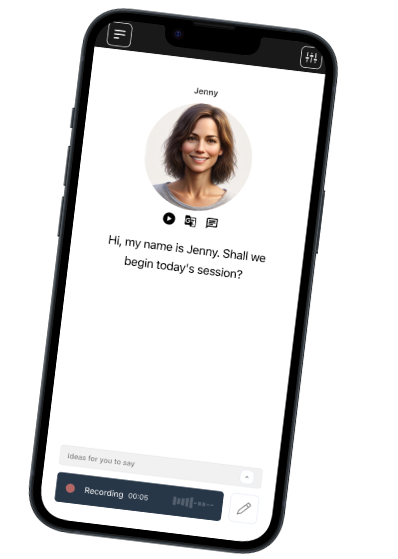Founded in Denmark. We respect your privacy.
Join a worldwide community of language learners
Direct vs Polite: Why Give me that Sounds Rude in English but Normal in Other Languages
Last updated on
It is just three words. Direct. Clear. Efficient. And yet, when you walk into a café and say, “Give me a coffee,” something in the room shifts. The barista might blink. The mood flattens. You might get the coffee, but not without a silent pause that lingers just long enough to feel uncomfortable.
If you have grown up speaking a language where directness is valued, where requests sound like commands without being impolite, this can be confusing. You are not trying to be rude. You are doing what feels natural: asking for what you want. But English often expects a softer approach, one padded with pleases, conditionals, and phrasing that seems oddly cautious.
What is happening here is not about grammar. It is about tone, expectation, and the invisible rules that shape how English speakers manage social space. And here is where it gets interesting: in many other languages, that same blunt phrasing would not just be acceptable, it might even be preferred.
Why English Often Feels Too Polite Until It Doesn’t
You might already sense it: English doesn’t just ask for things, it negotiates them. Instead of “Pass me the salt,” you’ll hear “Could you pass me the salt?” or even “Would you mind passing the salt, please?” This kind of phrasing is not about indecision. It is about giving the other person the space to say no, even if you expect a yes.
English, particularly in Anglo cultures, places a quiet value on emotional space and autonomy. Being too direct can feel like a power move; being indirect signals respect. In contrast, if you speak German, Russian, or Mandarin, you’re likely used to straightforward requests that aren’t wrapped in softeners. There, clarity is not seen as confrontational; it is efficient.
And if you’ve studied Japanese? You already know that politeness is layered: there is a version of “Excuse me” that is even more polite than the polite one.
When Tone and Timing Speak Louder Than Words
Tone can make or break what you say, even if your words are technically correct. Say “Give me that” with a grin to a friend, and it might pass as a joke. Say it to someone you don’t know, and you’ve just hit a wall. That is because English doesn’t operate on words alone; it relies heavily on how and when you say them.
In English-speaking cultures, directness often implies authority. Without softeners, a simple request can sound like an order. This is why power dynamics matter; colleagues, strangers, and even service staff might expect a certain tone that shows awareness of social balance. You are not just asking, you are showing respect.
Here are some swaps you might find useful:
- “Give me that” → “Could I have that?” or “Would you mind handing that over?”
- “Send it now” → “Can you send it over when you get a chance?”
When “Clear” Sounds Cold: The Silent Gap in Language Learning
If you have ever been told your English sounds “a little too direct,” you are not alone, and you are not wrong. Many learners build sentences by translating what feels natural in their native language. In many languages, saying “Bring me that” or “Open the door” is just efficient. It is not emotional. It is not rude. It just gets things done.
But English does not always work that way. What is clear in one language might come as cold or commanding in another. And this disconnect can be frustrating. You are following the rules. You are speaking correctly. So why do native speakers seem put off?
The reason? Grammar lessons do not always cover what happens between the lines. You are taught tenses, vocabulary, and sentence structure, but not the subtle tone shifts or social cues that come with real conversation.
Sound Polite Without Sounding Like Someone Else
Politeness in English does not mean you have to over-apologize or water down your personality. It is more about adjusting your tone based on where you are and who you are talking to. With a little strategy, you can stay true to your voice and sound naturally respectful.
Here are three ways to practice without second-guessing every sentence:
1. Listen for context
Notice how language changes in different places: the coffee shop, a team meeting, a casual text. Start tuning into how tone shifts depending on the setting, not just what is being said, but how.
2. Rephrase, don’t rewrite yourself
Try turning direct sentences into questions or suggestions.
Instead of “Send it,” try “Could you send it when you have a minute?” It softens without changing the goal.
3. Use AI tools to test tone
Practice with speech-based apps or tutors where you can experiment freely, no awkward stares, just honest feedback.
Try It Before You Get Lost in Translation
Politeness in English is not about fancy grammar or long-winded sentences, it is about timing, tone, and knowing when to soften your message. That is hard to figure out from textbooks alone.
Tools like Talkio give you space to try things out, make mistakes, and get real-time feedback on how your tone comes across. You can experiment with requests, questions, and common situations, without the pressure of speaking to a native speaker right away.
Try the app free for a week and see how small changes in tone can change how you’re heard.
Takeaway
Saying “Give me that” is not a mistake, it is just not always the right fit, depending on where you are and who is listening. Tone is not extra fluff in English; it is part of the message. It signals respect, builds trust, and lets your words land the way you mean them to.
You do not need to sound like a native speaker. You just need to understand how your words make others feel. And once you can hear the difference, you’ll start to feel it too, when you are not just speaking English, but connecting with it.
Talk Your Way
to Fluency

Talkio is the ultimate language training app that uses AI technology to help you improve your oral language skills!
Try Talkio


